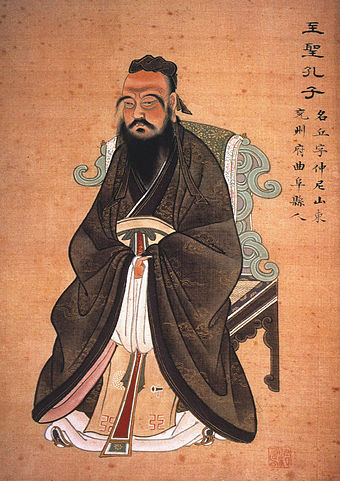Confucianism vs Taoism
The primary distinction between Confucianism and Taoism lies in the focus of each philosophy, as Confucianism concentrates on society, whereas Taoism focuses on nature. Although Buddhism remains China’s main religion, Confucianism and Taoism are two influential philosophies that have existed since around 550 BCE. To an outsider, these philosophies may appear to be opposites; however, they can also be seen as complementary to one another. These schools of thought are regarded as wise approaches to life and addressing the numerous problems and challenges life presents. There is often confusion between these two philosophies, which hold an almost religious status. This article will attempt to clarify the differences between Taoism and Confucianism.
It is common for followers of either philosophy to practice principles from the other. One clear aspect is that both remain philosophies rather than becoming full-fledged religions. The two philosophies emerged during the same era known as the Hundred Schools of Thought, a period characterized by internal strife and feudal tendencies. This discord is reflected in both Confucianism and Taoism, as both seek to provide guidance and comfort to people in their lives. A common thread running through both philosophies is their universal nature and worldview, despite originating in China.
What is Taoism?
In China, Taoism is viewed as an alternative way of life. The term “Taoism” is derived from the word “Tao,” which means “way” or the life force guiding living beings in the universe. Consequently, Taoism’s ultimate goal is the attainment of the way that reaches the universe’s primary cause.
Taoism is based on nature and emphasizes natural ways of dealing with life. Lao Tzu, the founder of Taoism, believed that the only way for individuals to achieve inner peace and harmony was through their inner spirit. He felt that people could observe and learn from nature about themselves and those who matter the most to them. This implies that nature, rather than government or laws, is the most crucial and guiding force for an individual. This belief stems from the view that nature is constant while government and laws are not, and that natural ways of dealing with problems are always better than imposed methods. The fact that most early spiritual leaders who followed Taoism were butchers, woodworkers, and other craftsmen attests to this way of thinking.
What is Confucianism?
Confucianism focuses on human conduct rather than the belief in a deity. Confucianism does not emphasize any deity, and when people attempted to elevate Confucius to the status of a god, he politely declined. Confucianism places a strong emphasis on ethics.
Regarding the differences, Confucianism concentrates on rituals, while Taoism emphasizes nature. In stark contrast, Confucianism proposes rituals as a way of life. Confucius believed that rituals brought order to life and that moral standards could only be maintained through the observance of rituals. Furthermore, if practiced continuously, they become a person’s inner nature, although merely performing them for the sake of doing so would not yield the desired results.
Key Takeaways
- Taoism is based on nature and emphasizes natural approaches to life, while Confucianism emphasizes human conduct over the belief in a deity.
- Taoism focuses on nature, whereas Confucianism focuses on creating a better society.
- Confucianism proposes rituals as a way of life, while Taoism emphasizes the importance of nature and the guidance it provides to individuals.
